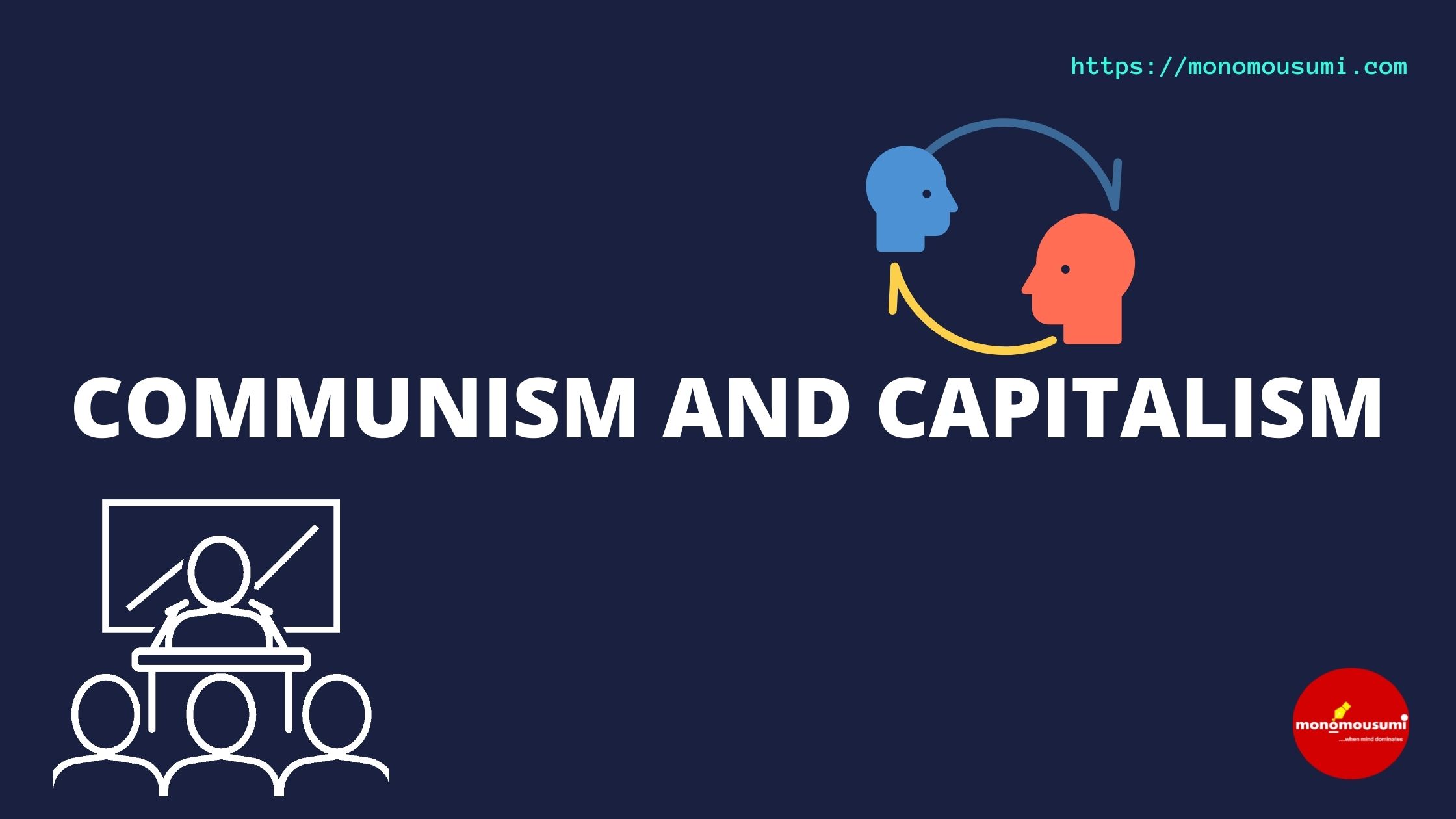
One of the most consequential struggles for dominance throughout antiquity has been the Cold War, which expanded for about 46 years and ended only with the collapse of the erstwhile Soviet Union in 1991. Albeit the Cold War did not include any head-on confrontations between the two superpowers( The United States of America and the Union of Soviet Socialist Republics), it did constitute several arenas that resulted in altering the course of history for several nation-states such as the Korean peninsula(1950-53), the Congo(1966), Vietnam(1960-70), Afghanistan et cetera.
Many-a-times, the veracious rationale behind one of the most significant rivalries in the world gets camouflaged behind its constraining repercussions, still observable, like the split of the two Koreas in 1945.
Although the Cold War beheld the engagement of military alliances led by the two superpowers( The North Atlantic Treaty Organisation and the Warsaw Pact), it was much more than just an armed conflict.
The Cold War was, in fact, an ideological ambivalence over the more feasible and efficient way of organising a particular society out of Communism and Capitalism.
Although the Cold War ended in 1991 with the termination of the Soviet Union, resulting in the capitalist mode of economy prevailing in most of the nations, the debate between Capitalism and Communism is still a controversial subject. Today capitalist societies and liberal democracies have numerous communist organisations and associations which rigorously advocate for a communist remodelling of their community and vice versa.
DEFINITION AND MEANING
COMMUNISM
- The term communism stands for an ideology in which the financial assets in a particular economy are owned, maintained and monitored by the state, not by the individuals. Subsequently, every individual is entitled to the same provisions and, there is no demarcation between the rich and the poor.
- The term ‘Private Property’ does not exist in a communist nation, and nearly every basic necessity, such as housing, food supplies, education, et cetera, are provided to the citizens by the Government.
- Although most people tend to use Communism and Socialism interchangeably, there is a crucial difference between the two. While in Communism, no individual is authorised to own private property, individuals can have rights over their property in a socialist economy. However, the significant monetary assets are still possessed by the Government in a socialist economy too.
- Some of the most imperative examples of a Communist economy include the Union of Soviet Socialist Republics(USSR) until 1991. The current Communist economies are The People’s Republic of China(PRC), Laos, Vietnam and Cuba.
CAPITALISM
- A Capitalist economy is characterised by the private ownership of businesses and means of production. Here the individuals possess independence over making investments and selling their goods at a particular price.
- The central interference is negligible in a Capitalist society. However, today most countries have adopted an economic model which derives attributes from both, Capitalism and Communism.
- One of the most palpable forms of Capitalism exists in a Laissez-Faire economy. This form of Capitalism exists without any checks or controls.
- Some significant examples of a prosperous Capitalist economy are The United States of America(USA), The United Kingdom, Australia, Ireland, et cetera.
ORIGIN AND ETYMOLOGY
COMMUNISM
- In the 18th century, a French aristocrat named Victor d’Hupay advocated the ideology of a ‘shared economy’ wherein all the property known as ‘communes’ would be shared, and every individual would benefit from collective work. History exhibits accounts of several other individuals and institutions who vindicated the ideology of shared profits and properties.
- However, Communism as a concept was propagated through the works of Karl Marx and Friedrich Engels, ‘Communist Manifesto’.
- A pamphlet published in 1848, The Communist Manifesto repudiated all the former interpretations of Communism and beckoned for a coercive communist revolution throughout the world for the conception of an equal and castless society.
- The ideals put forward by Marx and Engels were adopted as the basics of the Russian Revolution in 1917, which gradually led to the development of one of the greatest Communist nations throughout history, the Union of Soviet Socialist Republics(USSR).
CAPITALISM
- In contradiction to popular belief, the term ‘Capitalism’ was not coined by Karl Marx, although he did play an imperative role in popularising it.
- The term Capitalism was first used by the French socialist Louis Blanc in 1850, originating from the Latin word ‘capitalis’ that means ‘head of cattle’. He used it to refer to an economic system in which the primary means of industrial production are owned by private individuals instead of being shared amongst communities.
- Capitalism mainly evolved gradually from the ideologies of Feudalism and Mercantilism. The former refers to a social system in the Middle Ages in Europe in which people contested to receive land and protection from a land-owning nobleman.
- Mercantilism referred to an economic system between the 16th and 18th centuries, marked by the usage of tariffs and trade barriers to increase exports and limit imports to accumulate wealth.
THROUGHOUT HISTORY
COMMUNISM
- Inspired by the ideals of Karl Marx and Friedrich Engels, the Bolshevik Party led by Vladimir Lenin organised the October Revolution in 1917, which proved instrumental in the Russian Revolution from 1917 to 1923. The Russian Revolution gradually led to the establishment of the Soviet Union headed by the Communist Party.
- The ideals behind one of the largest communist nations in the world did not remain restricted to only the European continent. Invigorated by the successful run of the Communist Party of the Soviet Union, the Communist Party of China was established in July 1921.
- Either by exerting force or through carefully calculated moves, the USSR also proved successful in establishing communist regimes from 1940 to 1979 in most Eastern European countries such as Estonia, Latvia, Lithuania, Yugoslavia, East Germany, Hungary, et cetera.
- However, the goal of the Soviet Union to establish a communist regime in the entire world faced a major setback with the disintegration of the USSR in December 1991. As a result, liberal democracy and Capitalism were chosen as the ideals behind the operation of every erstwhile communist nation.
CAPITALISM
- The ideals behind Capitalism have been thriving throughout the world throughout history in the form of Feudalism and Mercantilism. Both ideologies have been practised widely for a prolonged period, particularly in Europe.
- After the end of the Second World War in 1945, the United States of America(USA) gathered the support of the Western European and North American nations and organised them into an alliance of capitalist regimes known as the North Atlantic Treaty Organisation(NATO).
- However, after the disintegration of the Soviet Union, nearly all the countries of the Second World agreed to adopt capitalist systems.
- International organisations such as the World Bank and the International Monetary Fund(IMF) provided aid to the former communist nations to make the transition into capitalist economies.
IN CONTEMPORARY WORLD
COMMUNISM
- The number of countries practising authentic Communism today is few. The Communist nations present in the world today are China, Cuba, Laos and Vietnam.
- The People’s Republic of China(PRC) practises Communism with a lot fewer restrictions than its authentic operation. The Communist Party of China still regulates most financial institutions of the country.
- Even in thriving Capitalist nations, multiple organisations exist which advocate for the establishment of a Communist system, such as the Communist Party of India(CPI) in India.
CAPITALISM
- Most of the developed nations in the world are today because of the successful and long run of capitalist regimes in their economies, such as the United States of America, Hong Kong, India, et cetera.
- The establishment of Capitalism in most countries has also boosted international businesses and exports from other nations. As a result, Globalisation has thrived.
- Likewise, multiple organisations exist in Communist nations relentlessly advocating for the establishment of Capitalism.
Both Capitalism and Communism as ideologies have captivated scholars, global leaders, politicians, academicians and the general public alike. While a faction of people favours Capitalism and Liberal Democracy over Communism and Socialism and the other the complete opposite, it is imperative to understand that a state of complete harmony and peace in the world can be achieved if the values and beliefs of others are viewed with an equal commiseration as our own.
By Anushka Verma


